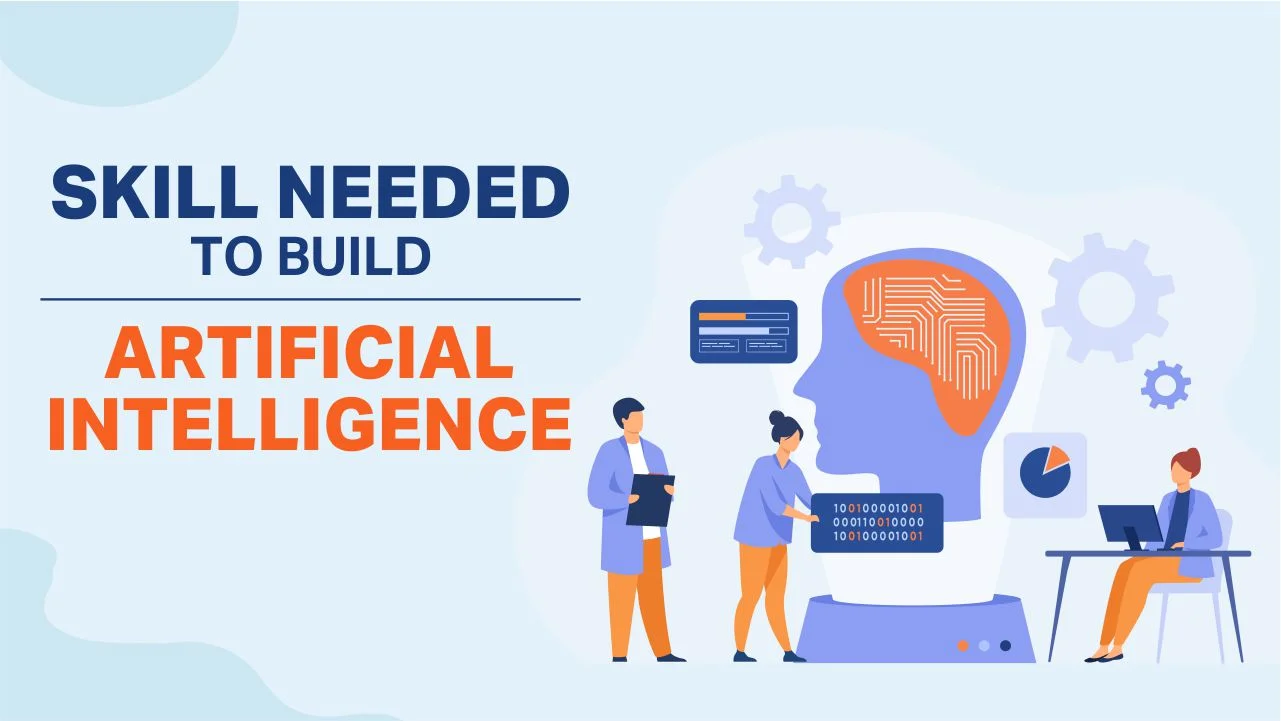
Skill Needed to Build Artificial Intelligence
Artificial Intelligence has emerged as one of the most quickly evolving and promising technologies across multiple industries. As AI continues to advance, the demand for professionals with artificial intelligence skills is skyrocketing.
Developing an understanding of how AI might impact specific sectors is crucial while we are still far from knowing its impact on the future. Artificial intelligence skills are in demand in a variety of sectors. These skills infiltrate various spheres of activity to get started.
This article outlines the importance of acquiring skills in artificial intelligence and promising jobs in the ai field.
Why do Artificial Intelligence Skills Matter?
Artificial intelligence is at the forefront of technological innovation, and organizations across industries. Such innovation leverages AI to gain a competitive edge. AI comes with a wide range of applications, including autonomous vehicles and virtual assistants for data analysis and predictive modelling.
By acquiring AI skills, individuals can position themselves at the forefront of this technological revolution and secure promising career opportunities.
Skills in Artificial Intelligence
- Programming Languages: Proficiency in programming languages such as Python, R, and Java is crucial for building AI systems. Python is widely used in AI development due to its simplicity and extensive library support. R is popular for data analysis and statistical modelling, while Java is useful for building scalable and enterprise-level AI applications.
- Machine Learning: Machine learning is a subset of AI that enables systems to learn from data and improve their performance. Understanding machine learning algorithms, such as linear regression, decision trees, neural networks, etc. is essential for developing AI models to do accurate predictions and decisions.
- Deep Learning: Deep learning is a specialized branch of machine learning that focuses on artificial neural networks with multiple layers. It is responsible for remarkable advancements in AI, such as image and speech recognition. Proficiency in deep learning frameworks like TensorFlow and PyTorch is crucial for building and training complex neural networks.
- Data Science and Analytics: AI systems heavily rely on data, and strong data science skills are vital for AI development. Understanding data collection, preprocessing and exploratory data analysis enables AI professionals to extract meaningful insights. Proficiency in tools like SQL, Apache Hadoop, and Apache Spark is also beneficial.
- Problem Solving and Mathematics: AI professionals should possess strong problem-solving abilities and a solid foundation in mathematics. Concepts like linear algebra, calculus, probability, and statistics are fundamental to understanding AI algorithms and developing efficient models. Problem-solving skills help in designing AI systems that address real-world challenges and deliver optimal solutions.
- Natural Language Processing (NLP): NLP focuses on enabling computers to understand, interpret, and generate human language. Proficiency in NLP techniques, including sentiment analysis, language translation, and text summarization. It is valuable for developing AI applications in areas like chatbots, virtual assistants, and information retrieval systems.
- Robotics and Automation: AI is closely linked to robotics and automation, and proficiency in these domains can open up exciting opportunities. Understanding robotic systems, control theory, and sensor integration allows AI professionals to develop intelligent autonomous robots and automation solutions that enhance efficiency and productivity.
Jobs in AI
The growing demand for AI skills has created a plethora of job opportunities across various industries. Let’s explore some of the exciting roles in the field of AI:
- AI Engineer: AI engineers develop AI models and systems by leveraging their programming, machine learning, and deep learning skills. They work on building algorithms, training models, and optimizing performance for AI applications.
- Data Scientist: Data scientists extract insights from large datasets and build predictive models using AI and machine learning techniques. They analyze data, identify patterns, and develop algorithms that drive data-driven decision-making.
- NLP Engineer: NLP engineers specialize in developing AI systems that understand and process human language. They work on tasks like speech recognition, language translation, and sentiment analysis, enabling AI applications in chatbots and voice assistants.
- Robotics Engineer: Robotics engineers combine AI and robotics to design and develop intelligent autonomous systems. They work on creating robots that can perceive and interact with their environment. It enables automation in industries like manufacturing and healthcare.
Conclusion
Acquiring artificial intelligence skills is becoming increasingly important as AI continues to shape our world. The skills mentioned in the blog, include programming languages, machine learning, deep learning, data science, and NLP.
By honing these skills, individuals can explore diverse and exciting job opportunities in the field of AI. So, embrace the potential of artificial intelligence, equip yourself with the necessary skills, and embark on a rewarding journey in this transformative field.
AI Researcher: AI researchers focus on advancing the frontiers of AI through groundbreaking research. They explore new algorithms, develop innovative models, and contribute to the development of AI technologies.
Also Read: The Power of Artificial Intelligence and Machine Learning
Recent Post
